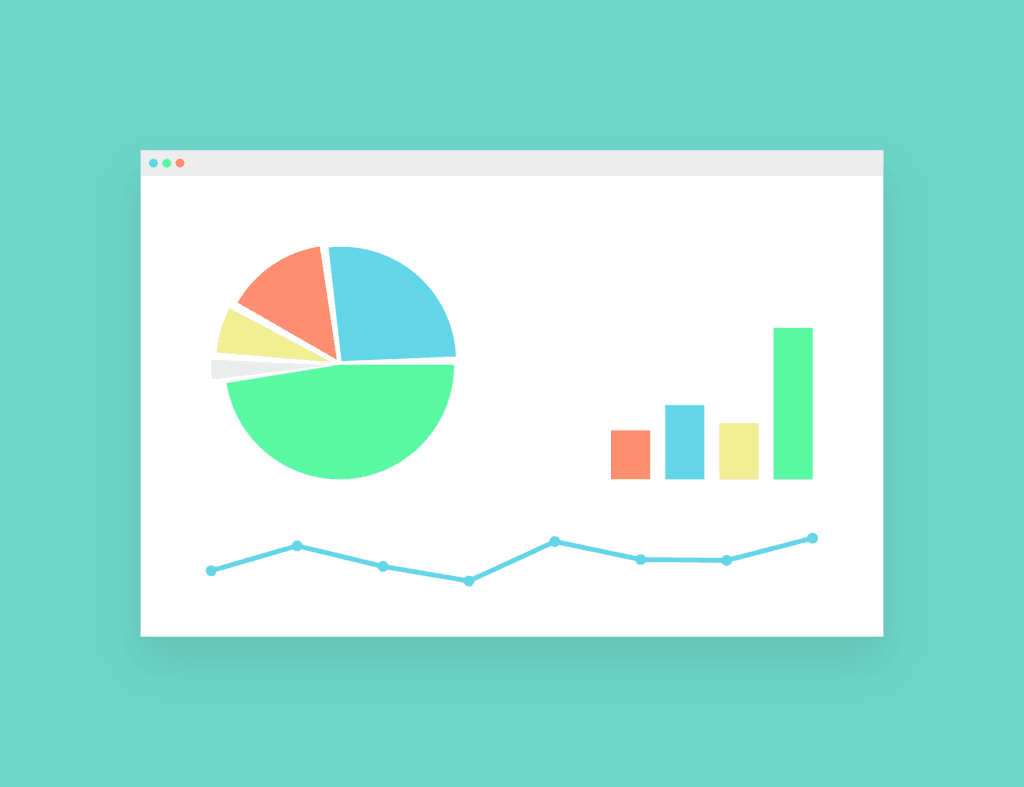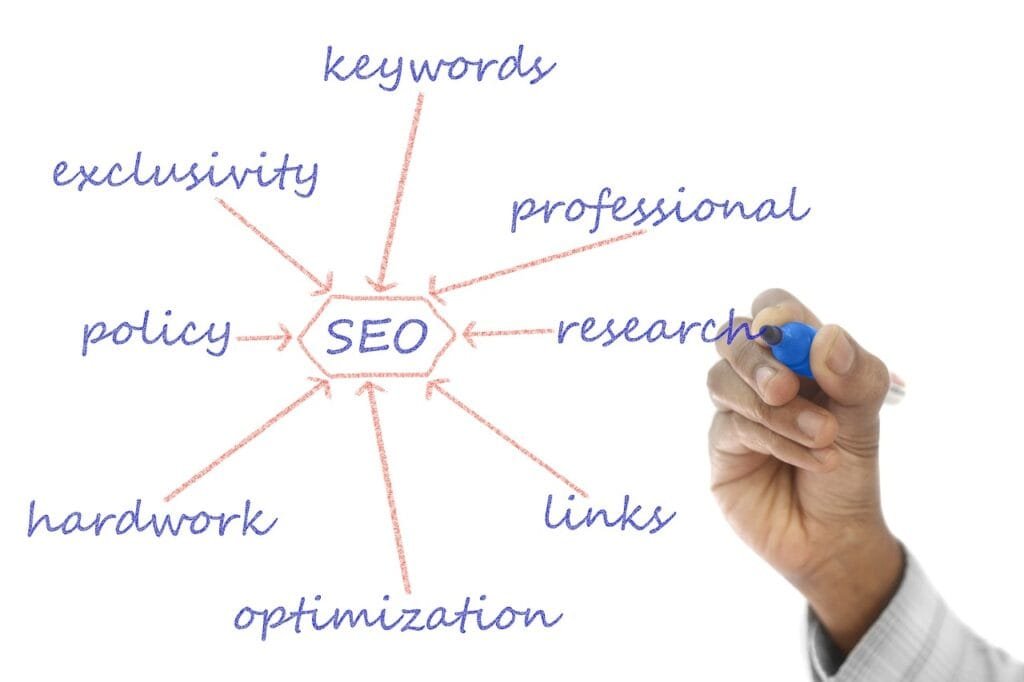This Article has been revised, edited and added to, by Poulomi Chakraborty.
- Understanding the Basics
- Decoding the Fundamentals
- Audience Overview
- Real-time Reporting
- Integration with Other Tools
- Deep Dive into User Acquisition Analysis
- Leveraging Goals and Conversions
- Customizing Dashboards for Actionable Insights
- Advanced Segmentation for Precision Targeting
- The Power of Predictive Analytics
- Building a Data-Driven Foundation
- Audience Analysis
- Understanding Audience Segments
- Audience Behavior
- Technology and Mobile
- Custom Audiences
- Crafting a Hyper-Personalized Experience Through Advanced Analytics
- Behavioral Cohort Analysis for Enhanced Customer Retention
- Utilizing Psychographic Segmentation for Deeper Engagement
- Integrating Cross-Device Tracking for a Seamless Customer Journey
- Predictive Behavior Modeling to Anticipate Needs
- Elevating Audience Analysis to Drive Growth
- Content Strategy
- Laying the Groundwork
- Understanding Content Consumption Patterns
- Content Personalization Using Analytics
- Data-driven Content Creation
- Optimizing Existing Content
- Evolving with Content Experiments
- Embracing the Storytelling Power of Data
- Advanced Content Optimization with Machine Learning
- Creating a Seamless Omnichannel Content Experience
- Leveraging User-Generated Content for Authentic Engagement
- Dynamic Content Personalization for Enhanced User Experience
- Revolutionizing Content Strategy with Analytics
- Conclusion
In the pulsating heart of the digital age, the travel and hospitality industry finds itself at a crossroads where the tradition of warm welcomes meets the dynamic potential of data-driven insights. Enter the formidable Google Analytics – a tool that bridges this gap, offering a roadmap to success paved with data, statistics, and actionable insights.
In this comprehensive guide, we take you on a journey through the various facets of Google Analytics, tailor-made for the unique needs and aspirations of the travel and hospitality sector. From the bustling corridors of hotels to the tranquil vistas of secluded resorts, from travel agencies crafting dreams to blogs nurturing wanderlust – every entity stands to gain profoundly through a mastery of this versatile tool.
So, let us embark on this enriching journey, unraveling the layers of Google Analytics, with a keen focus on leveraging its potential to the fullest, optimizing websites to not just attract but enthrall, not just engage but enrapture, carving pathways that lead to fruitful engagements and experiences that linger in the hearts of travelers.
As we forge ahead, we will delve deep into:
- Understanding the Basics: Decoding the fundamental principles and functionalities of Google Analytics, laying a strong foundation for a fruitful journey ahead.
- Audience Analysis: Gaining unprecedented insights into your audience, nurturing relationships that are grounded in understanding and empathy.
- Content Strategy: Crafting narratives that resonate, leveraging data to build content strategies that captivate and convert.
- Conversion Paths: Mapping journeys that transform casual browsers into loyal customers, fostering experiences that are rewarding for both the traveler and the service provider.
Understanding the Basics

Decoding the Fundamentals
In the expansive universe of Google Analytics, a grasp of the basic principles stands as the cornerstone of success. As stewards in the travel and hospitality industry, comprehending the core functionalities facilitates a journey of growth that is both sustainable and insightful. Let’s unravel these fundamentals:
- Accounts, Properties, and Views: Learn to effectively organize your digital assets, delineating them into accounts, properties, and views, a tiered structure that promises organized and efficient management.
- Dimensions and Metrics: Step into the realm of dimensions and metrics, understanding the dichotomy between qualitative and quantitative data, crafting narratives that are rich with insights and grounded in data.
Audience Overview
Delve deep into the demographics of your audience, understanding their preferences, behaviors, and patterns, a roadmap to strategies that resonate:
- Geographic Insights: Gain a geographical overview of your audience, allowing for targeted strategies that resonate with local preferences and global tastes.
- Behavioral Analytics: Uncover patterns in user behavior, an insight into preferences and inclinations, fostering strategies that are anticipatory and delightful.
Real-time Reporting
In the dynamic digital landscape, real-time reporting emerges as a beacon of immediacy, offering insights that are timely and actionable:
- Traffic Insights: Stay abreast of the traffic patterns on your website, understanding the pulse of visitor dynamics, and leveraging it for real-time optimizations.
- Event Tracking: Harness the potential of event tracking, understanding user interactions and preferences, guiding them through a journey that is both engaging and rewarding.
Integration with Other Tools
Leverage the seamless integration offered by Google Analytics, connecting with a suite of tools that promise a holistic approach to digital strategy:
- Google Ads Integration: Unleash the synergies of integration with Google Ads, crafting advertising strategies that are data-driven and targeted.
- Search Console Integration: Forge a powerful alliance with Google Search Console, bringing to your fingertips a reservoir of insights into search patterns and preferences.
Deep Dive into User Acquisition Analysis
Understanding where your traffic comes from is pivotal for any travel and hospitality business aiming to grow and succeed in the digital age. User Acquisition Analysis allows you to identify the channels that are not just bringing visitors to your website but are also contributing to your bottom line.
By analyzing acquisition data, startups can strategically allocate their marketing budgets, focusing on channels that offer the highest return on investment (ROI). This deep understanding enables the crafting of a marketing mix that leverages both organic and paid strategies to optimize visibility and conversion rates.
Leveraging Goals and Conversions
Setting up goals in Google Analytics is an essential step for travel and hospitality startups aiming to track conversions and measure success accurately. Whether it’s booking confirmations, newsletter sign-ups, or specific page views, defining clear objectives in Google Analytics provides a concrete foundation for assessing performance.
This setup allows businesses to see not just the volume of conversions but also to understand the paths users take to complete these actions. Analyzing conversion paths can uncover valuable insights, enabling startups to refine their user experience, streamline the booking process, and ultimately, increase conversions.
Customizing Dashboards for Actionable Insights
For startup founders in the travel and hospitality industry, the ability to quickly access relevant data is crucial. Custom dashboards in Google Analytics can be a game-changer, providing a snapshot of key metrics that matter most to your business.
By customizing dashboards, you can monitor real-time data, track your performance against set goals, and get insights into user behavior and conversion trends. This strategic approach ensures that decision-makers can swiftly identify opportunities for optimization and growth, making data-driven decisions that propel the business forward.
Advanced Segmentation for Precision Targeting

The travel and hospitality sector caters to a diverse audience with varying preferences and behaviors. Advanced segmentation in Google Analytics allows businesses to dissect their audience into specific groups based on demographics, behavior, acquisition channels, and more.
This precision targeting is invaluable for startups looking to deliver personalized experiences. By understanding the nuances of different segments, businesses can tailor their offerings, marketing messages, and user experiences to meet the unique needs and preferences of each group, enhancing satisfaction and loyalty.
The Power of Predictive Analytics
Harnessing the power of predictive analytics can set your travel and hospitality startup apart from the competition. Google Analytics offers predictive metrics, such as Purchase Probability and Churn Probability, which utilize machine learning algorithms to forecast future actions of website visitors.
By integrating these insights into your marketing strategies, startups can proactively engage with users who are most likely to convert and implement retention strategies for those at risk of churning. This forward-thinking approach enables startups to allocate resources more effectively, enhancing the customer journey and maximizing profitability.
Building a Data-Driven Foundation
For travel and hospitality startups, mastering the basics of Google Analytics is just the beginning. By diving deeper into User Acquisition Analysis, setting precise goals, customizing dashboards for quick insights, employing advanced segmentation, and leveraging predictive analytics, startups can unlock a wealth of data-driven strategies.
These efforts not only enhance understanding and decision-making but also pave the way for sustainable growth and success in the competitive digital landscape. Embracing these strategies ensures that your travel and hospitality business is not just surviving but thriving, ready to meet the demands of the digital-savvy traveler.

For DealA.com, we primarily use Google Analytics due to its extensive feature set, user-friendly interface, and seamless integration with our tech stack.
A specific use-case where GA shines is its real-time tracking capability, it immensely aids in rapid decision-making during high-traffic events like Black Friday when instantaneous data interpretation is pivotal.
Some tips I can recommend are, first, customizing dashboards for a tailored view of metrics that matter most to your business. Secondly, use segmentation to dive deeper into data and understand your users better.
Lastly, learning to utilize the ‘Goals’ feature, it helps in measuring how often users complete specific actions.
Despite its robustness, we’re always on the lookout for complementary tools that could provide unique insights.
Currently, we’re considering Tableau due to its advanced data visualization capabilities, which could provide a different perspective on our performance analysis.
Oleg Segal, CEO & Founder of DealA.com

As far as data analytics goes, we use Google Analytics a lot. It’s our favourite tool to track website traffic, understand customer behaviour, and measure campaign performance.
Google Analytics gives us a 360-degree view of our website’s performance, including bounce rate, conversion rate, traffic sources, and more. This allows us to identify areas of improvement and adjust our marketing efforts accordingly. With customizable reports and up-to-date data, we’re always informed of what’s working and what’s not.
For example, one of the ways Google Analytics works for us is by tracking our international shipping services. We can better tailor targeting and messaging to international customers by analyzing traffic and conversions across different regions.
As for tactics, I’d suggest setting goals and events to monitor specific actions on your site, such as form submission or product purchase. Utilizing UTM parameters in campaign tracking also ensures proper attribution and helps you measure the return on investment of your marketing efforts.
Diana Zheng, Head of Marketing of Stallion Express

Our website is the beating heart of our business, and SEO is the key to getting our website seen. Because of this, we do most of our data analytics work through Google Analytics.
They have the tools we need to make sure our site is thriving within their ecosystem, and we can be sure that they’re always going to update their analytics package to match SEO algorithms, which takes a lot of guesswork out of the process for us.
Nick Valentino, VP of Market Operations of Bellhop Atlanta Movers
Audience Analysis

Understanding Audience Segments
In the complex yet enriching environment of the travel and hospitality sector, understanding various audience segments becomes pivotal. Here, we explore:
- Age and Gender Segmentation: Tailor experiences and services based on the diverse age groups and gender preferences, creating a mosaic of experiences that resonate with every traveler.
- Interest Categories: Leveraging the insights into the interest categories of your audience allows you to tailor content that is engaging and resonates deeply with their preferences.
Audience Behavior
A close study of audience behavior allows you to fine-tune your strategies, promising experiences that are both personalized and delightful:
- New vs. Returning Visitors: Differentiating between new and returning visitors empowers you to craft targeted strategies, nurturing relationships that are fresh and sustaining those that are enduring.
- Frequency and Recency: Understanding the frequency and recency of visits offers insights into audience engagement patterns, crafting narratives that keep them coming back for more.
Technology and Mobile
In a digitally interconnected world, understanding the technological landscape of your audience paves the way for strategies that are futuristic and resonate with the digital natives:
- Devices and Browsers: Gain insights into the devices and browsers preferred by your audience, optimizing your digital assets for seamless experiences across platforms.
- Mobile Optimization: Leverage insights to craft experiences that are mobile-optimized, promising journeys that are seamless and engaging in the dynamic digital landscape.
Custom Audiences
Unleash the potential of custom audience segments, crafting narratives that are uniquely tailored to cater to niche groups, fostering relationships that are special and cherished:
- Remarketing Lists: Leverage remarketing lists to reconnect with potential customers, nurturing relationships that promise potential and growth.
- Lookalike Audiences: Harness the potential of lookalike audiences, reaching out to groups with similar preferences and tastes, expanding your horizon exponentially.
Crafting a Hyper-Personalized Experience Through Advanced Analytics
The cornerstone of any successful travel and hospitality startup lies in its ability to offer a personalized experience to its audience. Advanced analytics within Google Analytics provides an unparalleled depth of insights into customer behavior, preferences, and engagement patterns.
Startups can use this data to craft hyper-personalized experiences, from customized booking options to tailored travel recommendations. By understanding the subtle nuances of your audience’s online behavior, you can design your services to cater specifically to their desires, significantly enhancing customer satisfaction and loyalty.
Behavioral Cohort Analysis for Enhanced Customer Retention

In the competitive travel and hospitality industry, retaining customers can be just as challenging as acquiring new ones. Behavioral Cohort Analysis is a powerful feature within Google Analytics that allows startups to track the behavior of specific groups of users over time.
By analyzing these cohorts based on their actions, such as repeat bookings or frequent visits to certain pages, businesses can identify what keeps customers coming back. This insight is invaluable for developing targeted retention strategies, ensuring that your startup not only attracts but also retains a loyal customer base.
Utilizing Psychographic Segmentation for Deeper Engagement
While traditional segmentation focuses on demographics and geographic information, psychographic segmentation delves into the attitudes, interests, and lifestyle of your audience.
Google Analytics can help travel and hospitality startups to tap into this deeper level of understanding, enabling the creation of marketing campaigns and content strategies that resonate on a more personal level.
By aligning your offerings with the values and interests of your target segments, startups can foster deeper engagement, encouraging travelers to choose your services over competitors.
Integrating Cross-Device Tracking for a Seamless Customer Journey
Today’s travelers use multiple devices to research and book their travels, making it crucial for startups to offer a seamless experience across all platforms. Google Analytics’ cross-device tracking capabilities allow startups to understand how users switch between devices as they interact with your website.
This understanding enables businesses to optimize their online presence for a seamless transition from one device to another, ensuring that every touchpoint in the customer journey is engaging and consistent. A seamless experience can significantly boost conversions and customer satisfaction, key metrics for any growing business.
Predictive Behavior Modeling to Anticipate Needs
Leveraging Google Analytics for predictive behavior modeling allows startups to anticipate the needs and desires of their audience before they even articulate them. By analyzing past behavior, startups can predict future actions of their users, such as the likelihood of booking a trip during a certain period.
This capability enables travel and hospitality businesses to proactively offer deals, recommendations, and content that meet the user’s needs at the right moment, enhancing the customer experience and increasing the chances of booking.
Elevating Audience Analysis to Drive Growth
For travel and hospitality startups, diving deep into audience analysis is not just about understanding who your customers are but about anticipating their needs, crafting personalized experiences, and ensuring seamless interactions across all devices.
By leveraging advanced analytics, behavioral cohorts, psychographic segmentation, cross-device tracking, and predictive modeling, startups can gain a competitive edge in the market.
This strategic approach to audience analysis fosters deeper engagement, higher customer retention, and ultimately drives growth, positioning your startup as a leader in the travel and hospitality industry.
Content Strategy

Laying the Groundwork
At the intersection of traveler’s aspirations and digital realms lies the content – the lifeblood of every travel and hospitality digital presence. In an industry where experiences are sold and memories are purchased, content stands as the beacon, guiding travelers and guests. Google Analytics, when deftly employed, can fine-tune this beacon to shine brighter and resonate deeper.
Understanding Content Consumption Patterns
- User Flow Insights: Google Analytics lets you track the user flow, revealing how visitors navigate through your content. Understanding this flow can illuminate the paths that most resonate with your audience, guiding content placement and structure.
- Behavior Flow Reports: This feature provides insights into the content pieces that are most interacted with, allowing for a strategic adjustment to content positioning, layout, or even calls to action based on observed user behaviors.
Content Personalization Using Analytics
- Segmentation and Customization: By segmenting your audience based on demographics, interests, and behavior, you can tailor content to specific segments. For instance, crafting content tailored for solo travelers versus families, or adventure enthusiasts versus cultural explorers.
- Event Tracking: Utilizing event tracking can give insights into how users are engaging with embedded videos, downloadable travel itineraries, or interactive elements. This facilitates creating more of what works and optimizing what doesn’t.
Data-driven Content Creation
- Interest Reports: Google Analytics’ interest reports can reveal the broader interests of your website visitors. For the travel and hospitality sector, understanding if a significant portion of your visitors are outdoor enthusiasts, luxury seekers, or budget travelers can guide content creation.
- Search Queries: Using the Search Console integration with Google Analytics, identify what search queries bring users to your site. This can spark content ideas, ensuring you’re addressing the exact questions and interests of your potential guests or travelers.
Optimizing Existing Content
- Page Timings and User Experience: If your analytics show high bounce rates on certain content-rich pages, it may indicate slow load times or unoptimized images. Speeding up these pages can enhance user experience and boost engagement.
- Feedback Mechanisms: Incorporate feedback tools, like polls or short surveys on content pages, to gather direct audience insights. Using this alongside analytics can provide a clearer picture of content performance and areas of improvement.
Evolving with Content Experiments
- Testimonials and Reviews: In an industry where peer reviews hold significant sway, A/B test different formats or placements of testimonials to determine which resonates most with potential customers.
- Visual Content Experiments: For a sector that thrives on visual appeal – from serene landscapes to luxurious hotel interiors – experiment with image placements, video lengths, or even virtual tours to see what captivates your audience best.
Embracing the Storytelling Power of Data
In the realm of travel and hospitality, where experiences and emotions are the primary commodities, the art of storytelling becomes paramount. Google Analytics offers a treasure trove of data that can be woven into compelling narratives.
Startups can leverage these insights to tell stories that not only resonate with their audience but also drive them to action.
By analyzing user behavior and engagement metrics, you can identify the themes and types of content that captivate your audience, enabling you to craft stories that are not just heard but felt, stories that inspire bookings and adventures.
Advanced Content Optimization with Machine Learning
The integration of machine learning tools with Google Analytics transforms content strategy from a game of guesswork into a science of precision. Startups can harness these advanced algorithms to analyze vast amounts of data, identifying patterns and trends that human analysts might overlook.
This capability allows for the optimization of content in real-time, ensuring that your travel and hospitality business always communicates in the most effective manner. Whether it’s adjusting your messaging based on user sentiment analysis or optimizing delivery times for maximum engagement, machine learning ensures your content strategy remains dynamic and effective.
Creating a Seamless Omnichannel Content Experience
As the digital landscape becomes increasingly fragmented, offering a seamless omnichannel experience becomes crucial for travel and hospitality startups. Google Analytics can track user interactions across various channels and devices, providing a holistic view of the customer journey.
This insight allows startups to create consistent and personalized content experiences, whether a potential traveler is interacting with your brand on social media, your website, or through email marketing. Ensuring content consistency across channels not only enhances brand perception but also significantly improves the effectiveness of your marketing efforts, leading to higher conversion rates and customer loyalty.
Leveraging User-Generated Content for Authentic Engagement
In the travel and hospitality industry, authenticity sells. User-generated content (UGC), such as customer reviews, photos, and videos, offers an authentic glimpse into the experiences your business provides. Google Analytics can help you measure the impact of UGC on your website and social media channels, guiding you in strategically incorporating it into your content strategy.
By showcasing real stories from satisfied customers, startups can enhance trust and credibility, encouraging more bookings. Furthermore, analyzing engagement with UGC can provide insights into what potential travelers find most appealing, allowing for more targeted and effective content creation.
Dynamic Content Personalization for Enhanced User Experience
Personalization is key to standing out in the crowded travel and hospitality sector. With Google Analytics, startups can go beyond basic demographic targeting, employing dynamic content personalization based on user behavior, interests, and past interactions with your brand.
This approach ensures that every piece of content a user encounters is relevant and engaging, significantly enhancing the user experience. From personalized travel recommendations to customized email marketing campaigns, dynamic personalization can dramatically increase engagement, conversion rates, and customer loyalty.
Revolutionizing Content Strategy with Analytics
For travel and hospitality startups, a sophisticated content strategy powered by Google Analytics is not just an advantage; it’s a necessity in the competitive digital landscape.
By embracing the storytelling power of data, leveraging advanced machine learning for content optimization, creating seamless omnichannel experiences, utilizing authentic user-generated content, and implementing dynamic personalization techniques, startups can ensure their content resonates deeply with their audience.
This strategic approach not only enhances user engagement and conversions but also establishes a strong, loyal community around your brand, paving the way for sustainable growth and success in the travel and hospitality industry.

Related: Check out our free SEO suite

Conclusion
As we reach the end of our comprehensive exploration into the world of Google Analytics tailored for the travel and hospitality sector, we stand enriched with insights and strategies that promise not just growth but a journey of understanding, empathy, and engagement that stands unparalleled.
Through our journey, we have traversed the foundational realms of understanding the basic functionalities, wherein we learned to steer the ship with a grip on the dynamic features and reports that Google Analytics offers. We forged ahead into the depths of audience analysis, a pathway that promised a deep understanding of the vibrant and diverse audience landscapes, a roadmap to crafting experiences that resonate on a personal level, nurturing relationships that are enduring and rewarding.
And then we ventured into the realm of content strategy, a vibrant landscape where data-driven insights met creative narratives, promising experiences that were not only engaging but truly resonated with the heartbeats of our audience, a tapestry rich with personalized experiences, and experimental approaches that promised innovation and growth.
Read Next




















